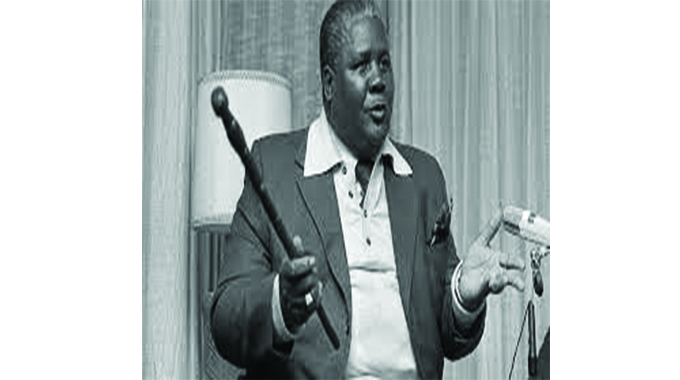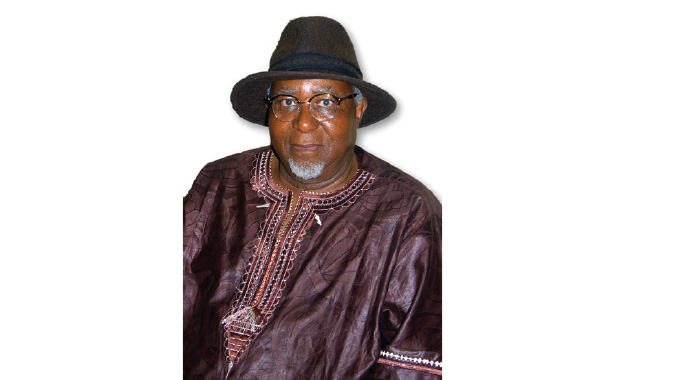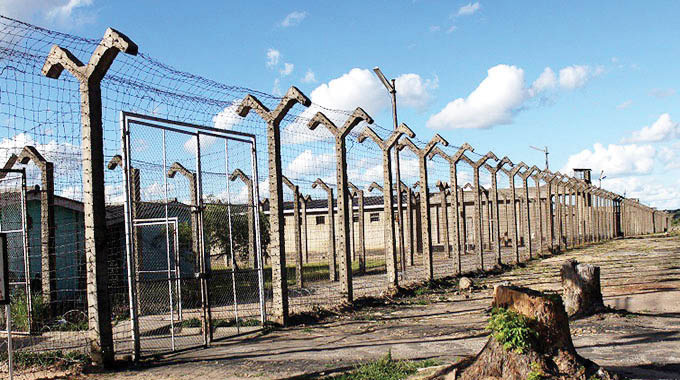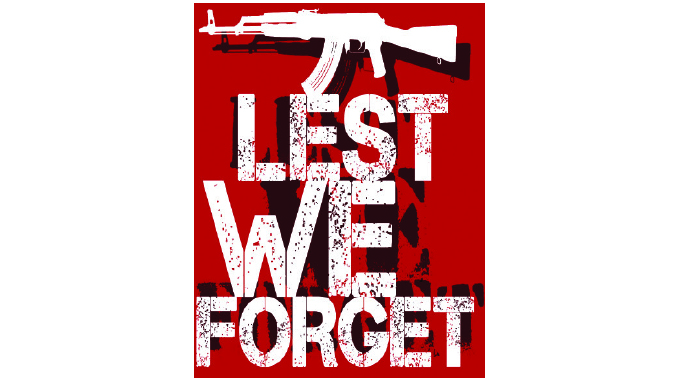
The Sunday News

CDE Irvine Khulekani Sibhona pseudonym Cde Barberton Muzwambila was with the late Brigadier-General (Rtd) Collin Moyo (Rodwell Nyika) the two ZPRA front commanders by the time of the declaration of the ceasefire on 21 December 1979.
As the armed struggle reached its crescendo, ZPRA divided its operational areas into two fronts, the northern that stretched from Bulilima in Matabeleland South to Mashonaland Central while the southern was from Mangwe District and ideally it was meant to stretch as far as Manicaland. Each front was divided into three regions with each region divided into three zones.
While in the northern region all the regions were functional by the time of the ceasefire in December 1979, in the southern only two were functional as ZPRA did not deploy up to Manicaland.
On Wednesday last week our Assistant Editor Mkhululi Sibanda (MS) managed to trace Cde Sibhona and he touched on a number of issues and he did not hold back as he made his views clear on the failure of the Zimbabwe People’s Army (Zipa), amalgamation of ZPRA and Zanla, the death of Rogers Mangena alias Alfred Nikita whom he said by the time of his death was a “marked” man as he had made “many enemies because of his professional command of ZPRA”.

Cde Dumiso Dabengwa
Cde Sibhona, who trained at Morogoro in 1974 and was later on withdrawn from operations to undergo officer cadet training at Zambia Military Academy at Kohima also spoke on the sibling rivalry between the party’s intelligence arm, National Security and Order (NSO) which was headed by now late national hero, Cde Dumiso Dabengwa and the military. NSO was structured as a modern intelligence outfit with branches such as finance and administration, intelligence, counter-intelligence, training, military intelligence and close security.
It had established its headquarters in a Lusaka suburb called Roma with each branch having a director who reported to Cde Dabengwa.
In the no holds barred narration, Cde Sibhona accused NSO operatives of “playing dirty and feeding” party President, Dr Joshua Mqabuko Nkomo with unfounded allegations to influence decisions, which he said later compromised a lot of things.
He gave the example of the appointment of the ZPRA commander to succeed Mangena and the removal of senior commanders to deploy them as party representatives in friendly countries. Cde Sibhona also debunked the narrative that Kalangas were favoured in ZPRA at the expense of other ethnic groups. Below are excerpts of the interview. Read on . . .

Dr Joshua Mqabuko Nkomo
MS: You are commonly known as Barberton, so who is Barberton?
Cde Sibhona: I was born Irvine Khulekani Sibhona near Thekwane Mission in Bulilima District that is in Matabeleland South Province. My father was a teacher and when he went to get an identity card, the white clerks corrupted our family name, instead of writing the spelling in Kalanga which is Tjibona, they wrote in corrupted SiNdebele, Sibhona. It, however, has stuck with us.

Cde Irvine Khulekani Sibhona
For my schooling I attended Masuku Primary in Bulawayo’s Tshabalala suburb and Mpopoma High. After Mpopoma I went to Nongoma Music College but left as my father did not like it. Before joining the armed struggle I worked for companies such as the then Rhodesia Railways and Radiator and Tinning.
MS: What motivated you to join the armed struggle?
Cde Sibhona: I had come face-to-face with racism when one of the whites I was working for part-time in Wankie (Hwange) almost had me drowning in the Zambezi River during a fishing expedition. Instead of showing remorse he made a joke of it. I went down the river and the water swept me to the middle of the Zambezi, swallowed water.
I was just lucky, you know when I say lucky. That was probably the time when I was lucky in my life. Then suddenly a boat appeared and swerved around me, that guy put me in the boat and moved to the shore where there was sand. That guy then started bumping on me so that I could vomit the water.
Then my employer came to me and started saying “wena yazi yifa, wena yazi yifa, wena hamba lapho bhobhojani.”

Khami Maximum Prison.
Then he started telling his friends that I almost drowned because I wanted to go across to Zambia. You know, I was very angry. While I was still coming to terms with what was happening, suddenly a kudu appeared being chased by dogs, resulting in it being forced to jump into the water.
The kudu then turned and dashed for safety outside the water. From nowhere one of the dogs was attacked by a crocodile. One of the whites then said: “you bloody f . . . lucky kaffir”. That pained me a lot.
When I picked myself up, I took my bag and left. I took the Deka-Hwange route. That white man tried to plead with me to reconsider my decision but I just ignored him.
I walked the better part of the night until I reached a homestead where I was accommodated for the night. That’s how I first met the guerillas, they came there. It was towards the end of 1971.
I saw the guerillas and the owner of the homestead warned me against telling anybody about what I had seen. The following day I walked all the way to Wankie.

MS: Then when did you leave the country to join the armed struggle?
Cde Sibhona: It was in 1974 when I joined the armed struggle. I left with Walter Ndlovu. Walter had been part of a group of 1971 with some guys from the Matiwaza family, but not Ben, who when they got to Zambia they found Zapu in a crisis, the internal problems that afflicted Zapu during that time.
The Zambian Minister, Aaron Milner asked them to take sides, he said they should choose between Zapu, the Chikerema camp and the March 11 group, which was made up of guerillas who had attempted to round up the Zapu leadership.

Aaron Milner
Those guys were many, probably more than 100 and when they did not take sides, Milner said they did not know what they were in Zambia for and ordered that they be bundled into a truck. They were then delivered to the Rhodesians who gladly locked them up at Khami Maximum Prison.
From there they were given jobs. So uWalter as I was working with him at the NRZ kept on talking about the struggle and the feeling we had we was that if we went to war and take up arms, we would push all whites out of the farms.
We would look at the farms along the Bulawayo-Plumtree route and dream of having them as ours. At times we would go together ekhaya, ePlumtree by train and marvel at the farms. Walter would tell me about the AK-47, he was politicising me. He is around.
But when we got to Zambia he was recognised and many suspicions arose why he had come back. It was probably short-term as he was cleared and allowed to go for training. However, his problem was that he ran away after training and joined the Rhodesians. It looks like he was sent by the enemy. When I saw him after the war he seemed very uncomfortable.
MS: Where did you receive your training?
Cde Sibhona: I was trained at Morogoro in Tanzania. I trained with John Nyamupingidza, Waison Tshipa.
MS: After training where were you deployed?

Cde John Nyamupingidza
Cde Sibhona: After that we were sent straight to Mozambique to join the Zimbabwe People’s Army (Zipa). We did not come to Zambia straight away.
But Tshipa was supposed to go to Zambia in a group of 30, they were led by Tjile Nleya (Brigadier) who had been one of the instructors at Morogoro. We were two groups, there was those with Nleya, the 30 where like I said there was Nyamupingidza, Dandi and so on.
There was also the now late Charles Grey who was known as Mike Reynolds, who became a brigadier after Independence. When Grey he joined the war some people were suspicious of him because of the theory that coloured’s supported whites. I am told it took the intervention of Jason Ziyapapa Moyo for him to be allowed to join our system.
MS: You said Nleya and his group of 30 troops were supposed to go to Zambia but ended up being diverted to Mozambique, elaborate on that.
Cde Sibhona: They were stopped at the Tanzanian border with Zambia, it should have been regional politics at play. When the 30 got to the border they were instead told that they could not proceed and told to head to Mozambique.
Our deployment to Mozambique had its own problems as ZPRA as there were no instructions from our commanders, no explanation on what was going on to us the soldiers. We were only told that politicians were unifying the two forces.
In Tanzania we were around 200 troops that is ZPRA, there were also others who had completed training in the Soviet Union and were flown straight to Maputo. Some of us were flown from Dar es Salaam to Tete Province while others were put in a ship. However, the whole ZIPA thing had many problems, the problems started even before we set foot in Mozambique.
MS: Take us through those problems . . .
Cde Sibhona: We found a group of Zanla comrades coming from Mgagao who suggested that we ZPRA should use the ship. Myself, Lemon Ndukwana and George Chavunduka openly refused to allow that. We instead suggested that each group be halved, with part of our group joining Zanla and Zanla also bringing theirs to us.
That way it meant that we would fly both groups while others would use the ship. I was then in the group that flew to Tete and when we hit the airport it could have been December 1975.
What we also had not anticipated was moving into Frelimo camps. When we got to Mozambique, they were six months into their Independence as they attained it on 25 June 1975.
At the airport in Tete we were welcomed by the Mozambican Deputy Minister of Defence, his name was Mubote. Delivering his address, he told us to forget about our respective political parties and instead concentrate on forming a united fighting force.

Late national hero General Solomon Mujuru
He said we were no longer what we were before and that was a huge surprise to us, it was a complete shock. This is because to us guerillas we believed that our job was to fight and liberate the country and not delve into politics. After Mubote then Zipa commander, Rex Nhongo (late national hero General Solomon Mujuru) took over.
We were into more shock when he seemed not to be too kind to Dr Joshua Nkomo. Everything was happening so fast and the whole thing was just traumatising us.
To make matters worse there were no ZPRA commanders in sight in Tete and that compounded the situation for us. So Zipa has problems from the word go.
To be continued next week



